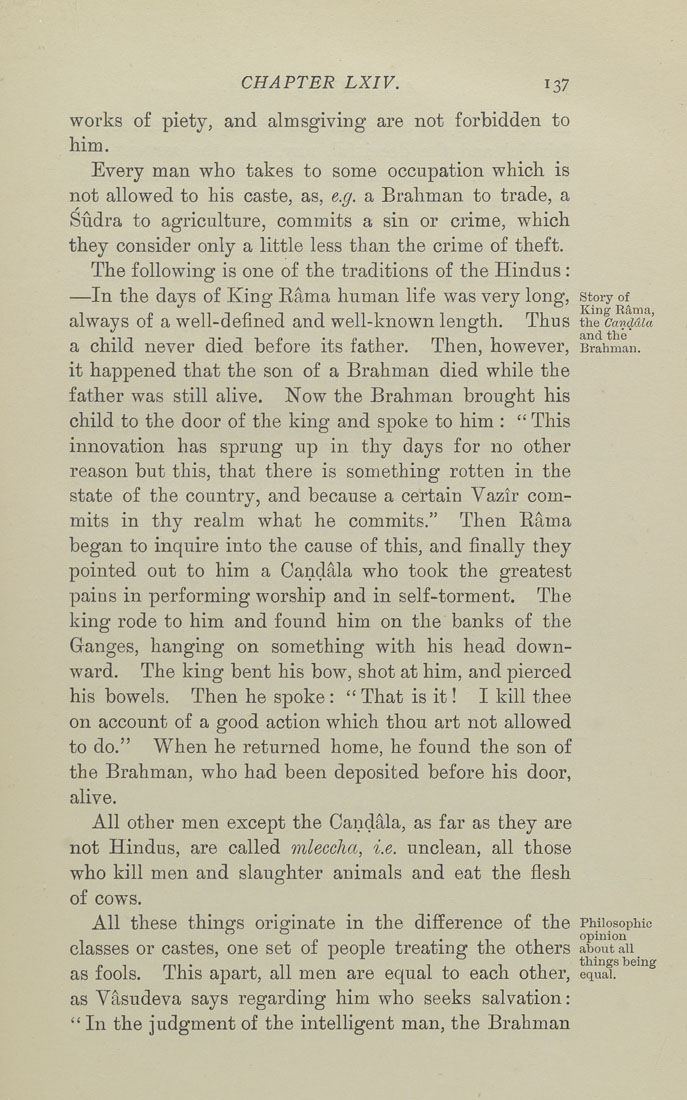CHAPTER LXIV. 137
works of piety, and almsgiving are not forbidden to
him.
Every man who takes to some occupation which is
not allowed to his caste, as, e.g. a Brahman to trade, a
Sudra to agriculture, commits a sin or crime, which
they consider only a little less than the crime of theft.
The following is one of the traditions of the Hindus :
—In the days of King Rama human life was very long, story of
always of a well-defined and well-known length. Thus the canmd
a child never died before its father. Then, however. Brahman.
it happened that the son of a Brahman died while the
father was still alive. Now the Brahman brought his
child to the door of the king and spoke to him : " This
innovation has sprung up in thy days for no other
reason but this, that there is something rotten in the
state of the country, and because a certain Vazir com¬
mits in thy realm what he commits." Then Rama
began to inquire into the cause of this, and finally they
pointed out to him a Candala who took the greatest
pains in performing worship and in self-torment. The
king rode to him and found him on the banks of the
Ganges, hanging on something with his head down¬
ward. The king bent his bow, shot at him, and pierced
his bowels. Then he spoke : " That is it! I kill thee
on account of a good action which thou art not allowed
to do." When he returned home, he found the son of
the Brahman, who had been deposited before his door,
alive.
All other men except the Candala, as far as they are
not Hindus, are called mlecchct, i.e. unclean, all those
who kill men and slaughter animals and eat the flesh
of cows.
All these things originate in the difference of the Philosophic
. . , opinion
classes or castes, one set of people treating the others about aii
as fools. This apart, all men are equal to each other, equal.
as Vasudeva says regarding him who seeks salvation:
"In the judgment of the intelligent man, the Brahman
|








